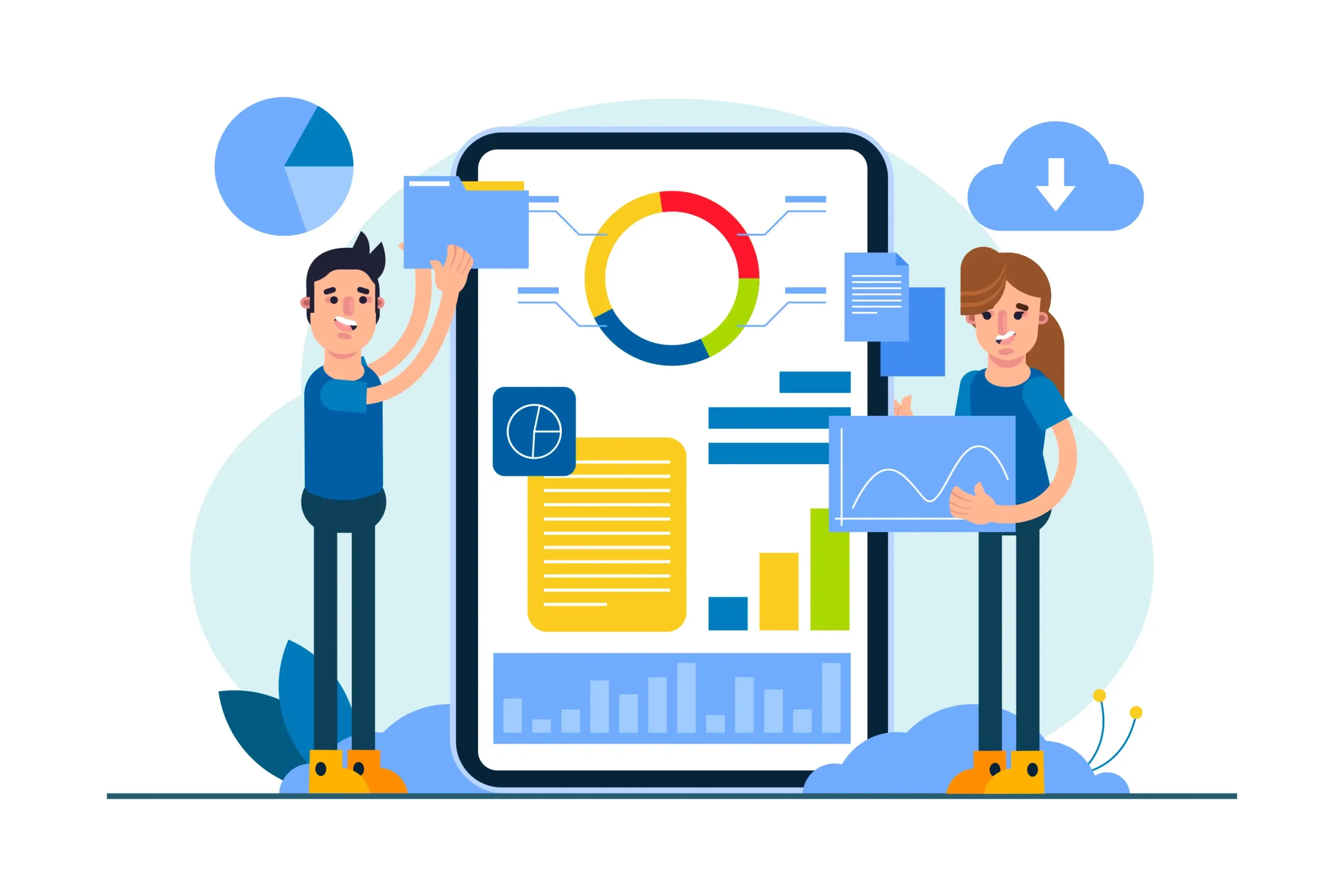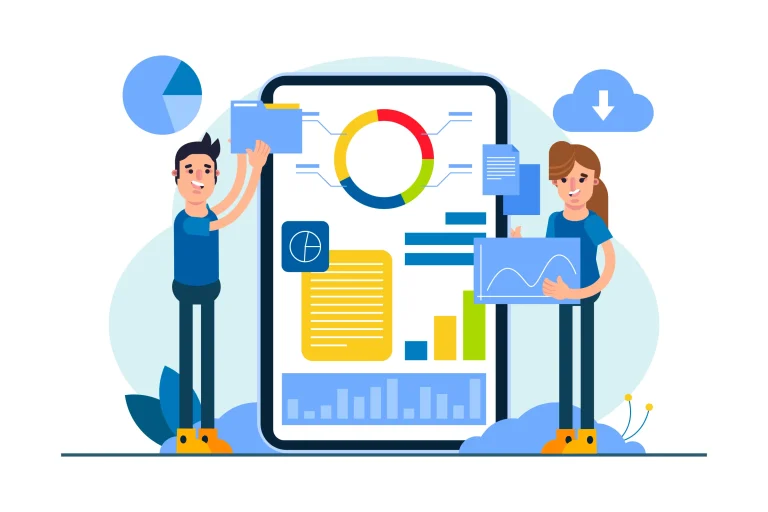How ERP Integration Can Streamline Your Entire Business Workflow

Introduction
In today’s fast-paced digital economy, efficiency isn’t just a goal it’s a competitive advantage. Businesses are constantly seeking ways to optimize operations, reduce redundancies, and make data-driven decisions. However, managing multiple software systems accounting, HR, sales, inventory, CRM, and production often leads to silos that slow down processes and create communication gaps.
This is where ERP integration becomes a game changer. Enterprise Resource Planning (ERP) systems bring together all critical business functions under a single digital roof, offering real-time visibility and control across departments. Instead of juggling fragmented tools, businesses can unify their workflow saving time, cutting costs, and driving smarter decisions.
Let’s explore how integrating an ERP system can revolutionize your entire business workflow and unlock seamless efficiency across every operation.
1. Centralized Data for Smarter Decision-Making
One of the most significant benefits of ERP integration is centralized data management. In traditional setups, departments often use separate software to store and process data—HR has its own system, sales rely on CRM, and accounting uses another platform. This decentralization leads to data duplication and delays in accessing accurate information.
With ERP integration, all data is stored in a unified database. From customer details and financial records to production stats and supply chain metrics, every piece of information is accessible in real time. This not only ensures consistency but also empowers leadership teams to make informed decisions backed by accurate, updated insights.
Key advantages:
- Elimination of data silos across departments.
- Real-time access to key performance indicators (KPIs).
- Improved forecasting and strategic planning through accurate analytics.
2. Streamlined Communication Between Departments
A major pain point for growing organizations is poor inter-departmental communication. Sales might not update inventory about new orders, HR might not sync with finance on payroll changes, or operations may struggle to align with procurement.
ERP integration breaks these barriers. By connecting every department through one digital system, ERP ensures that information flows automatically and transparently. For example, when a sales order is placed, the ERP instantly updates the inventory, triggers production, and notifies the finance team for invoicing—without the need for manual coordination.
The result? Seamless collaboration, fewer errors, and faster response times.
3. Enhanced Productivity Through Automation
Manual data entry and repetitive administrative tasks are not just time-consuming—they’re error-prone and demotivating for employees. ERP systems eliminate these inefficiencies through automation.
Whether it’s generating invoices, managing purchase orders, or processing payroll, ERP automates recurring workflows that would otherwise require human effort. This allows teams to focus on strategic, high-value tasks instead of getting stuck in routine operations.
Automation benefits include:
- Reduced human error and faster turnaround times.
- Consistent task execution across the organization.
- Increased employee satisfaction through reduced workload.
4. Real-Time Visibility into Business Operations
Imagine being able to monitor every aspect of your business—from sales to shipping—at any given moment. ERP integration provides exactly that: real-time visibility.
With customizable dashboards, managers and executives can track performance metrics, monitor ongoing projects, and identify bottlenecks instantly. This real-time transparency leads to proactive decision-making, ensuring that potential problems are addressed before they escalate.
For instance:
- The finance team can view live expense reports and revenue forecasts.
- Production managers can track work orders and material usage in real time.
- HR can instantly see workforce availability and attendance data.
This level of visibility makes ERP not just a management tool but a strategic enabler for continuous improvement.
5. Improved Customer Experience
Modern customers expect fast responses, personalized service, and accurate delivery timelines. ERP integration helps meet these expectations by aligning all customer-related processes—from order management to after-sales support.
When your ERP is integrated with CRM and logistics systems, your team gains instant access to customer history, order status, and inventory levels. This ensures that customer queries are resolved faster and orders are fulfilled accurately.
Customer experience benefits:
- Quick order processing and delivery.
- Personalized engagement through unified customer data.
- Fewer service delays and higher satisfaction levels.
In the long run, this fosters loyalty and trust, strengthening your brand’s market position.
6. Better Financial Management and Compliance
Financial management is at the heart of every business operation. ERP integration simplifies this by connecting your accounting, sales, procurement, and payroll systems into a single financial framework.
Automated reporting and compliance tracking ensure that all transactions are recorded accurately and regulatory requirements are met without manual oversight. Advanced ERP software can even generate real-time profit and loss statements, cash flow reports, and tax summaries.
Benefits for finance teams:
- Enhanced accuracy in budgeting and forecasting.
- Automated tax compliance and audit trails.
- Instant access to real-time financial insights.
Ultimately, ERP integration allows businesses to maintain financial discipline while minimizing the risk of non-compliance or costly errors.
7. Scalable and Flexible Growth
As businesses expand, so do their operational complexities. The advantage of ERP integration is its ability to scale alongside your growth. Whether you’re opening a new branch, expanding into e-commerce, or managing multiple supply chains, ERP systems can adapt to your evolving needs.
Cloud-based ERP solutions, in particular, provide the flexibility to integrate new modules—like HRMS, CRM, or analytics—without disrupting existing workflows. This scalability ensures that your ERP grows with you, supporting innovation and long-term stability.
8. Cost Reduction Through Efficiency
ERP integration is often viewed as a major investment—but in reality, it delivers substantial cost savings over time. By minimizing duplication, automating manual tasks, reducing delays, and improving accuracy, businesses can significantly cut operational costs.
Moreover, real-time analytics help identify areas of waste or inefficiency, allowing organizations to allocate resources more effectively.
Cost-saving highlights:
- Reduced labor costs through automation.
- Lower IT maintenance expenses due to unified systems.
- Optimized inventory and resource management.
When executed strategically, ERP integration delivers measurable ROI within months of implementation.
9. Stronger Data Security and Governance
In an age of increasing cyber threats and regulatory scrutiny, data security is non-negotiable. ERP systems provide robust governance frameworks that control who can access, modify, or share sensitive information.
With built-in access controls, audit trails, and encryption, ERP ensures that your business data remains secure across all touchpoints. Cloud-based ERP platforms further enhance protection through advanced backup and disaster recovery options.
Security advantages include:
- Controlled data access based on user roles.
- Encrypted data transmission and storage.
- Real-time monitoring for unauthorized activities.
By consolidating data under one secure system, businesses can prevent breaches and maintain compliance with data protection laws.
10. Integration with Modern Technologies
Today’s leading ERP solutions don’t work in isolation—they integrate seamlessly with other modern technologies like AI, IoT, machine learning, and analytics tools.
For instance:
- AI can predict inventory needs based on sales trends.
- IoT devices can track supply chain movement in real time.
- Analytics tools can forecast market demand with accuracy.
These integrations transform ERP into an intelligent digital ecosystem, driving continuous innovation and smarter business operations.
Conclusion
ERP integration isn’t just a software upgrade—it’s a strategic transformation that connects people, processes, and technology under one cohesive system. From streamlining communication and automating workflows to enhancing financial accuracy and customer satisfaction, ERP serves as the backbone of modern business efficiency.
In an increasingly digital world, companies that adopt ERP integration gain not just operational clarity, but a competitive edge—built on agility, data intelligence, and collaboration.
Whether you’re a small enterprise or a global corporation, partnering with a reliable software development company to design a tailored ERP solution can redefine how your business operates—making every process smoother, faster, and smarter.
Table of content
- Introduction
- 1. Centralized Data for Smarter Decision-Making
- 2. Streamlined Communication Between Departments
- 3. Enhanced Productivity Through Automation
- 4. Real-Time Visibility into Business Operations
- 5. Improved Customer Experience
- 6. Better Financial Management and Compliance
- 7. Scalable and Flexible Growth
- 8. Cost Reduction Through Efficiency
- 9. Stronger Data Security and Governance
- 10. Integration with Modern Technologies
- Conclusion









